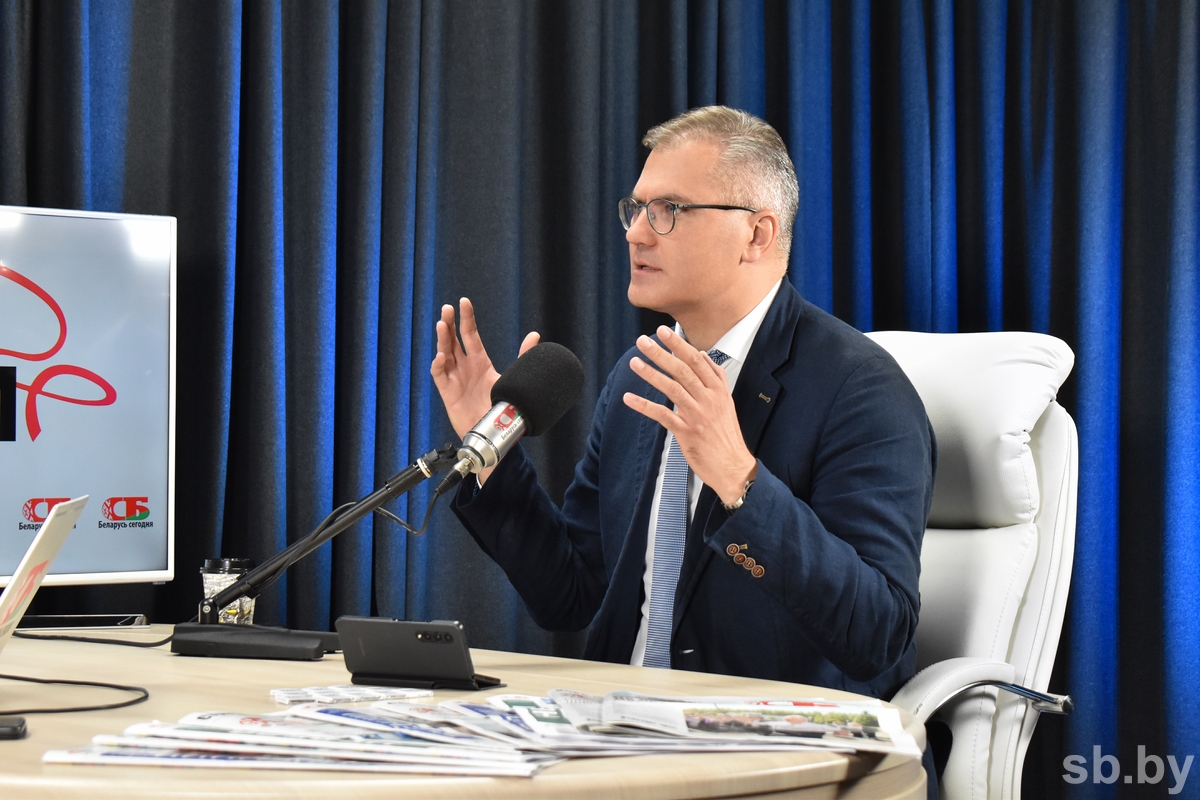Expert: Ukrainian grain is tool of manipulation in Polish election campaign
In early 2023, Poland and some other European states introduced restrictive measures on imports of Ukrainian grain since its low price negatively affected the business of local farmers. Under pressure from agrarian workers, the European Commission then allocated 100bn Euros of financial assistance to them and imposed some restrictions. The Ukrainian authorities found a solution: they used the sea for transportation and, violating all agreements on the grain deal, continued to sell grain to the European Union. Recently, Russia announced its final withdrawal from that deal, and Zeleneskyy now has to negotiate with Poland in order to sell grain. Vadim Gigin, the Director General of the National Library of Belarus, commented on the topic in his talk with Alfa Radio.

September 15th is just around the corner: all Polish farmers are waiting for it with bated breath: the ban on imports of Ukrainian products imposed by the European Commission expires on this day. If it is not extended, farmers will face hard times. Most likely, they will come out to protest again, right on the eve of the elections to the Polish Parliament.
“Mateusz Morawiecki [Prime Minister of Poland] has already stated that – regardless of the EU decisions – his country will not accept Ukrainian grain, as Poland does not need it,” Mr. Gigin stressed.
The countries of Eastern Europe have already created an anti-grain coalition, and it includes Poland, Slovakia, Bulgaria, Romania, and Hungary. These countries are not interested in the supply of Ukrainian agricultural products. As explained by Mr. Gigin, Ukraine is a strong competitor in the agricultural market of Europe. “Do you remember how the Maidan began, why Yanukovych [ex-President of Ukraine] did not sign the association agreement of his country with the European Union? Ordinary Ukrainians were told they would be able to enjoy a visa-free regime, will be able to travel to Europe to work and holiday, to have access to low-cost airlines and whatever they wished. In reality, the economy was the key. The Ukrainian Government headed by Azarov [ex-Prime Minister of Ukraine] and the officials who came later said that it was unprofitable for the country, that they needed guarantees. Those fears that Ukraine will suffer losses and that its product will not enter the European market, among other things, became the reason for not signing that agreement,” the expert noted.
Everyone knows what happened next. Problems related to the access to European markets continued in times of Poroshenko, and they are still in place.
“Zelenskyy thought that the war will reset everything, but it is not the case. War is just war, but the business is another matter. Ukraine has one function: to fight against Russia. It is not needed for anything else. It is a protectorate, a semi-colony, a country that is devoid of subjectivity. Zelenskyy bought into the tricks of Western officials, who promoted and drove him around, who showed him like a dummy, who gave prizes and applauded to him. It was necessary to motivate Ukrainian society to blood, death, murder, and war. They have actually achieved the set task.”



